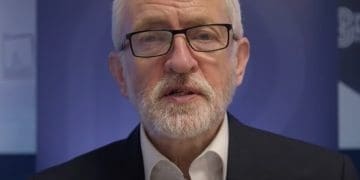A major strike brought much of Germany’s air traffic, rail service and commuter lines to a halt on 27 March, as workers demanded wage hikes in the face of rapid inflation.
Workers at airports, ports, railways, buses and metro lines heeded a call by the Verdi and EVG (Eisenbahn- und Verkehrsgewerkschaft) unions for the 24-hour walkout. Reuters described it as “one of the largest walkouts in decades” in Germany, while local media nicknamed it a ‘mega-strike’.
‘Labour struggle without strikes is toothless’
Verdi represents around 2.5 million public sector employees, while EVG represents 230,000 workers on the railways and at bus companies. The rare joint strike marks further escalation of an increasing dispute over a pay packet to blunt the impact of surging inflation. Verdi is demanding a rise of 10.5% in monthly salaries, while EVG is seeking a 12% increase.
Employers, mostly the state and public sector companies, have so far refused the demands. Instead, they offered a rise of five percent with two one-off payments of 1,000 and 1,500 euros, this year and next.
As a result, Berlin’s usually busy central train station was mostly quiet on the morning of 27 March, after the national railway cancelled long-distance and regional links across the country:
No trains at all coming or going on the notice board at Berlin's central station, in the midst of one of the biggest strikes in decades pic.twitter.com/GyhNVjVKdR
— Giulia Saudelli (@giuliasaudelli) March 27, 2023
Meanwhile, the arrival and departure boards at Frankfurt and Munich airports showed rows of cancelled flights.
MORE MORE MORE
✈️ over a thousand flights cancelled at Frankfurt Airport amid ongoing strikes. About 160.000 passengers are affected with some being redirected to smaller airports and then taken to FFM via buses. pic.twitter.com/BoEJUtWYq6— Emily Gordine (@emilygordine) March 27, 2023
Without workers nothing moves!@MUC_Airport looks like a ghost city during workers #Streik
From Greece our solidarity with the workers of Germany on #strike for wage raises! pic.twitter.com/iNRjs4Hzko
— PAME Greece International (@PAME_Greece) March 26, 2023
Verdi leader Frank Werneke told public broadcaster Phoenix that “labour struggle that has no impact is toothless”. He added that “one day of strain with the prospect of reaching a wage agreement” is better than “weeks of industrial action”.
Meanwhile, according to German national paper DW, EVG’s negotiating committee member Kristian Loroch said:
The willingness to strike is very high, and the anger among the workers over being stalled by the employers is huge…
We are striking today because in collective bargaining, despite the tight financial situation for many workers, we have not been presented with anything that is worthy of serious negotiations.
Strikes are a fight for survival
Of course, the bosses were furious at the striking workers. Martin Seiler, head of human resources at state-owned rail company Deutsche Bahn (DB), claimed the strikes were “groundless and unnecessary”. Additionally, the German airport association said the strikes “went beyond any imaginable and justifiable measure”.
However, unions pointed out that their members are bearing the brunt of a soaring cost of living crisis. Like many other countries, people in Germany are struggling with high inflation. The rate hit 8.7% in February. As a result, unions called the strikes a “matter of survival”.
Earlier in March, airports in Bremen, Berlin, Hamburg and Hanover cancelled more than 350 flights after security staff walked out. Bus and metro staff in Frankfurt also staged a strike. A third round of salary negotiations for public sector workers began on 27 March.
Featured image via The Independent/YouTube
Additional reporting by Agence France-Presse









